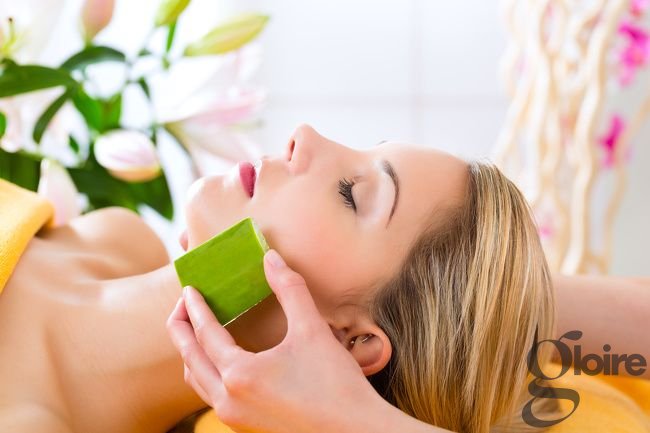Why Does Hair Become Dry? Causes and Symptoms
Understanding the causes of dryness helps in selecting the right treatments. Common factors include:
- Environmental Exposure: Sun, wind, and pollution strip moisture from hair.
- Heat Styling: Frequent use of blow dryers, flat irons, and curling wands dehydrates hair.
- Chemical Treatments: Hair dyes, perms, and relaxers weaken the hair’s natural barrier.
- Lack of Hydration: Not drinking enough water affects hair moisture levels.
You can read more about hair care products at The Best Hair Care Routine for Healthy Hair.
Tip 1: Use a Hydrating Shampoo and Conditioner
Choosing the right shampoo and conditioner is the first step in keeping hair moisturized.
- Sulfate-Free Shampoos: Sulfates remove natural oils, causing dryness. Choose shampoos with nourishing ingredients like argan oil, coconut oil, or shea butter.
- Moisturizing Conditioners: Look for conditioners containing aloe vera, glycerin, or hyaluronic acid to lock in moisture.
How Often Should You Wash Dry Hair?
Washing too frequently can strip moisture. For dry hair, washing 2-3 times a week is ideal. Deep conditioning once or twice a week helps replenish hydration.
For more on how to care for your hair during treatments, visit Hair Spa Types, Benefits, Cost, and Process.
Tip 2: Reduce Heat Styling
Excessive heat damages hair, leading to moisture loss. Minimize heat styling or use protective measures.
- Air-Dry When Possible: Letting hair dry naturally retains moisture.
- Apply Heat Protectants: If using heat tools, apply a heat protectant spray to prevent moisture loss.
Alternatives to Heat Styling
Instead of heat, try braid-outs, twist-outs, or rollers to style hair without damage.
Explore more hydration treatments in this Hair Botox vs. Keratin Treatment Comparison.
Tip 3: Use Leave-In Conditioners and Serums
Leave-in conditioners provide continuous hydration between washes.
- Hydrating Ingredients: Choose products with aloe vera, argan oil, coconut oil, or panthenol to prevent dryness.
- Serums for Extra Protection: Serums form a barrier that locks in moisture and adds shine.
How to Apply Leave-In Products Effectively
After towel drying, apply leave-in conditioner to damp hair, focusing on the ends. Pair with a serum for added hydration throughout the day.
You might want to learn more about different treatments like What Is Hair Botox Treatment?.
Tip 4: Apply Weekly Hair Masks for Deep Hydration
Hair masks provide deep nourishment, making hair softer and more resilient.
- Oil-Rich Masks: Masks with jojoba oil, coconut oil, or shea butter penetrate the hair shaft to restore moisture.
- DIY Options: Natural ingredients like avocado, banana, olive oil, and egg yolk can create effective homemade masks.
How to Use Hair Masks for Best Results
Apply to damp hair, concentrating on mid-lengths and ends. Leave on for 20-30 minutes under a shower cap for better absorption. Use once a week for noticeable improvement.
For more tips on hair care, read How to Stop Hairfall: 5 Essential Tips.
Tip 5: Protect Your Hair at Night
Nighttime care prevents moisture loss while you sleep.
- Use Silk or Satin Pillowcases: Unlike cotton, these materials reduce friction and moisture loss.
- Protective Hairstyles: Loose braids or buns prevent tangles and retain moisture overnight.
How to Build a Night Routine for Hydrated Hair
Before bed, apply a few drops of hair oil to the ends. This locks in moisture and ensures you wake up with soft, manageable hair.
Common Mistakes to Avoid When Moisturizing Dry Hair
- Overwashing: Washing too frequently removes natural oils.
- Skipping Conditioner: Conditioner is essential for locking in moisture.
- Using Harsh Towels: Rough drying with towels can lead to breakage.
- Ignoring Scalp Health: A dry scalp can affect overall hair moisture.
- Not Drinking Enough Water: Hydration starts from within.
FAQ
Q: How often should I moisturize dry hair?
A: Daily leave-in conditioner or hair oil is recommended, with weekly deep conditioning for optimal results.
Q: Can drinking water help with hair moisture?
A: Yes, staying hydrated supports hair health and improves moisture retention.
Q: What is the best oil for dry hair?
A: Coconut oil, argan oil, and jojoba oil deeply nourish and lock in moisture.
Conclusion
Keeping hair moisturized requires consistent care. By choosing the right products, reducing heat styling, and using protective measures, you can restore hydration and maintain healthy, soft hair. Stick to these five essential steps for long-term results.
For more hair care tips, visit Best Hair Care Routine for Healthy Hair and Hair Loss Causes, Symptoms, and Treatments.








